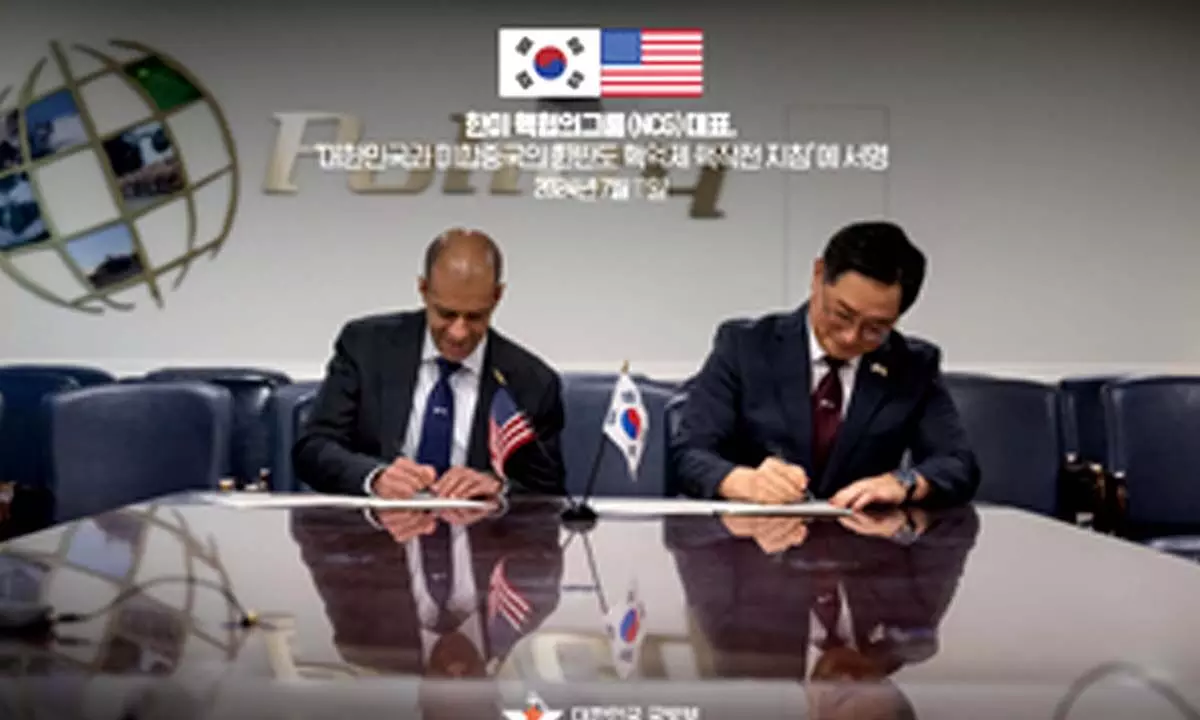US strategic assets to be assigned to Korean Peninsula on 'constant' level: ministry
Share :

A joint nuclear deterrence guidelines document signed by South Korea and the United States will significantly expand the assignment of US strategic assets on the Korean Peninsula to a "constant" level, South Korea's defence ministry said Friday
Seoul: A joint nuclear deterrence guidelines document signed by South Korea and the United States will significantly expand the assignment of US strategic assets on the Korean Peninsula to a "constant" level, South Korea's defence ministry said Friday, as the allies seek to bolster their cooperation in responding to North Korean threats.
On Thursday, Cho Chang-rae, Seoul's Deputy Defence Minister for Policy, and Vipin Narang, Acting US Assistant Secretary of Defence for Space Policy, inked the 'Guidelines for Nuclear Deterrence and Nuclear Operations on the Korean Peninsula'.
The signing of the document came a year after the allies launched the Nuclear Consultative Group in joint efforts to ensure the credibility of America's "extended deterrence" commitment to South Korea in an integrated way that includes South Korea's conventional support for US nuclear operations in a contingency.
Extended deterrence refers to a US pledge to mobilize the full range of its military capabilities, including nuclear arms, to defend its ally, reports Yonhap news agency.
Under the joint guidelines, the allies will seek to expand the frequency and level of US strategic assets deployed to the Korean Peninsula, as the document commits to the assignment of Korean Peninsula missions of such weapons during both wartime and peacetime, according to the ministry.
The document also paves the way for the allies to sharpen their practical capabilities against nuclear threats through the joint sharing of intelligence, planning, training and implementation of operations, with South Korea expected to play a bigger role compared with the past, it added.
"The US had notified of and discussed imminent deployment of strategic assets. But South Korea and the US will now discuss the need for such deployment around-the-clock," a ministry official said.
The ministry emphasised that the signing of the document elevates the South Korea-US alliance that had been based on conventional weapons to a "firm nuclear-based alliance."
"The conventional-nuclear integration between South Korea and the US marks the first and sole case of a non-nuclear nation directly discussing nuclear operations with the US," the ministry said according to Yonhap news agency.
On Thursday, President Yoon Suk Yeol and US President Joe Biden warned that any North Korean nuclear attack against South Korea will be met with a "swift, overwhelming and decisive" response, as they highlighted "tremendous" progress in their joint deterrence efforts.
The leaders issued the warning as they met on the margins of a North Atlantic Treaty Organisation summit in Washington amid growing concerns over North Korea's unceasing pursuit of advanced nuclear and missile programmes and its deepening military alignment with Russia.













